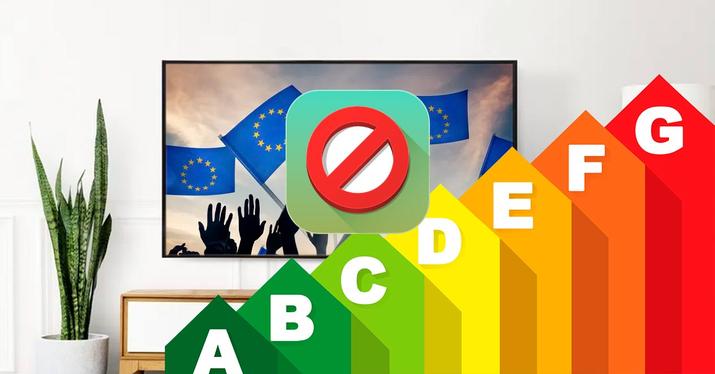The next 2023, which is just around the corner, will mean a change in the European regulation for the sale of Smart TVs, but it will not be the only product, but the European Union, in its objective of reducing energy consumption, has also put the focus on remote controls.
The European Parliament has reached a provisional agreement that affects some types of batteries, so manufacturers will have to find new, more ecological solutions for their remote controls.
Europe will ban these remote controls
If we review the last European Union report, we can see that a provisional agreement has been reached we can read that the Parliament and the Council reached a provisional agreement to revise the EU rules on batteries and take into account technological advances and future challenges. This applies to all types of electronic products with batteries.

“The agreed standards will cover the entire life cycle of batteries, from design to end-of-life, and will apply to all types of batteries sold in the European Union: portable batteries, SLI batteries (which supply power for the starting, lighting or starting vehicles), light-duty batteries, means of transport (LMT) batteries (providing power for traction of wheeled vehicles such as scooters and electric bicycles), electric vehicle (EV) batteries and industrial batteries”.
Therefore, in the search for greener and cheaper batteries, “negotiators agreed to stricter requirements to make batteries more sustainable, efficient and durable.”
“Three and a half years after the legislation went into effect, portable batteries in household appliances must be designed so that they can be easily removed and replaced by consumers.”
Thus, remote controls with irreplaceable built-in batteries will have to be phased out in the future.
A great example to look at is Samsung’s SolarCell, which, in addition to having an internal battery that allows the device to be charged in the traditional way using its USB Type C port, as well as being able to be charged by radio frequency (for example, that of a router) and even by solar charging.
Smart TVs should consume less in 2023
The European Union, in its energy saving plan, wants less brightness or less consumption for HDR on Smart TVs. This will especially affect those models that have achieved a lower energy rating due to their high energy consumption, with special emphasis on 8K models, which want to be the future of televisions.

The reason is the energy crisis that we are experiencing and that has only worsened with the Russian invasion of Ukraine. In this way, to try to reduce energy, the consumption of televisions will be prioritized ahead of other aspects such as the brightness of HDR. Energy savings above image quality.
This regulation and the changes that are expected when the new year enters, will be especially pronounced in 8K models and most high-end Smart TVs. Almost all of these models move in the energy classification “G”.
The regulation that will come into force in December 2022 requires a maximum consumption that is calculated based on variables such as size and resolution and produces a result called the Energy Efficiency Index that will be necessary for all televisions that are going to be sold within the member countries of the European Union.













